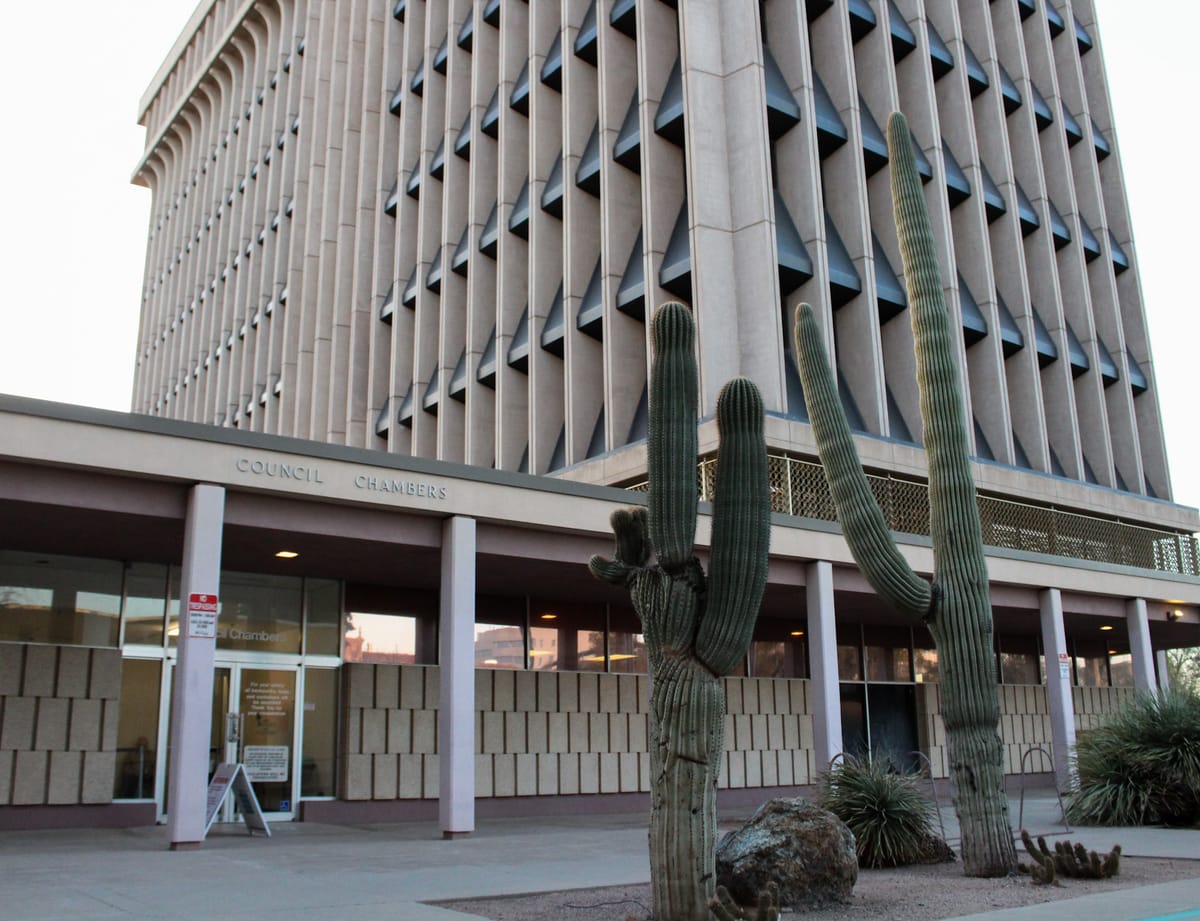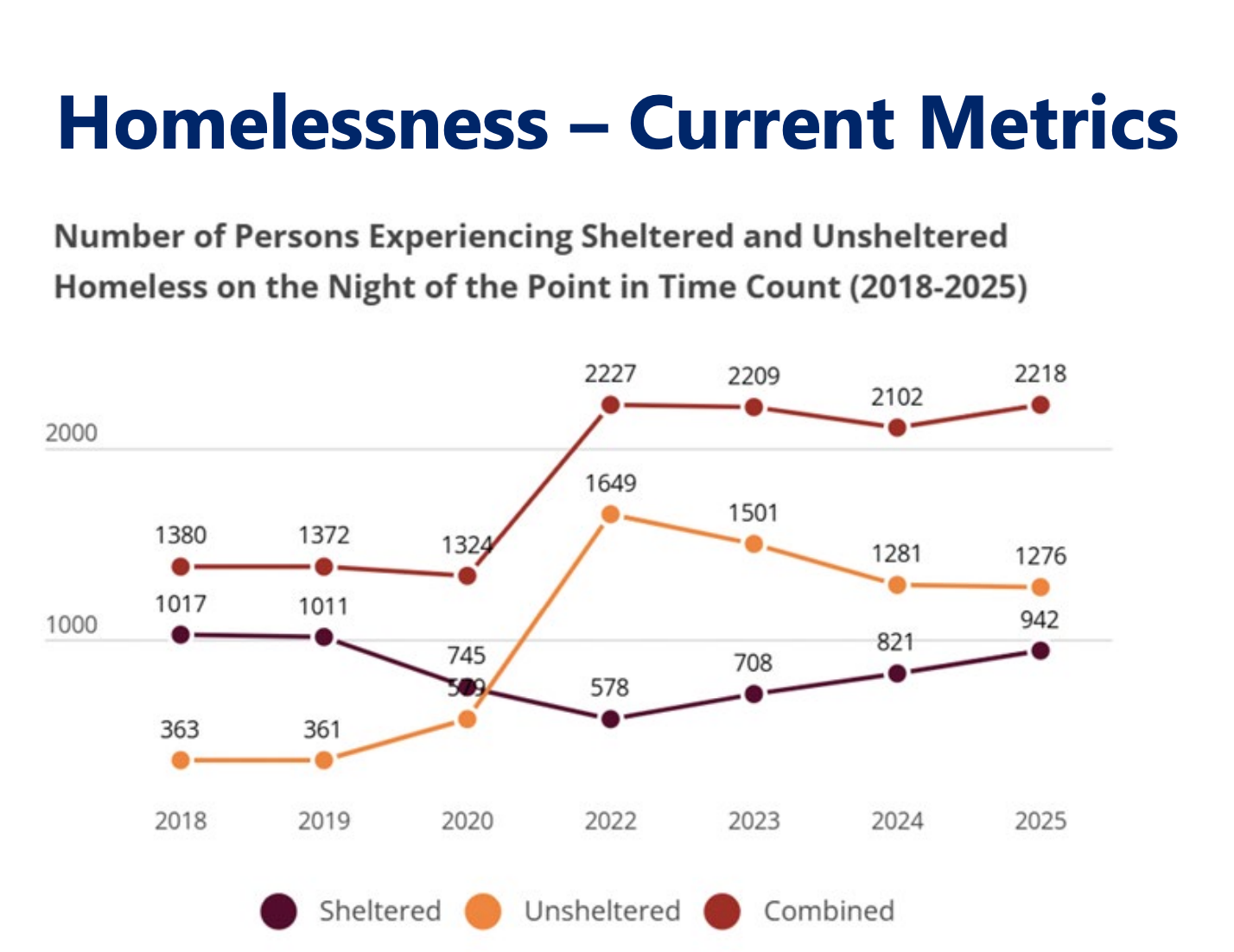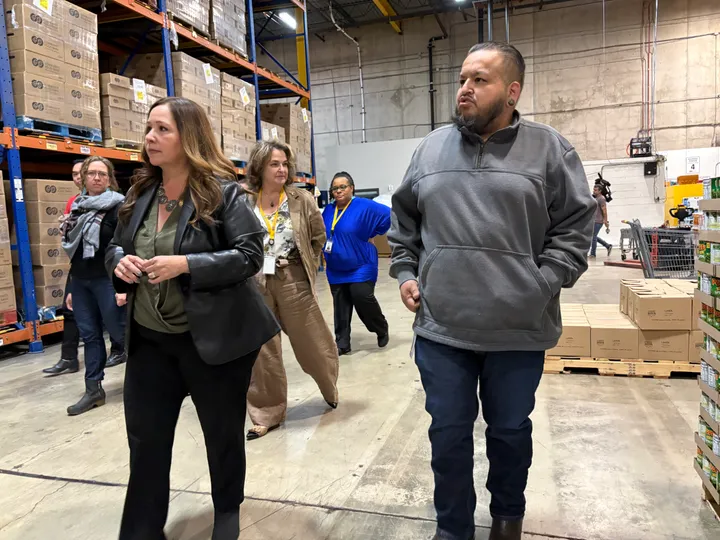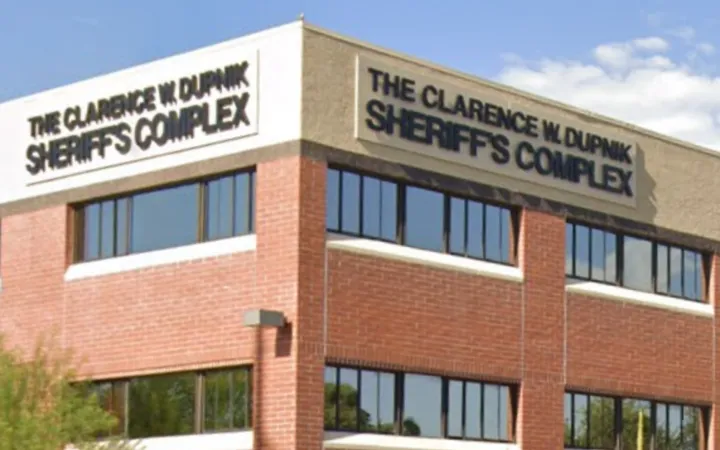Tucson City Council weighs homelessness declaration
Tucson officials are considering declaring homelessness a citywide emergency to ease zoning restrictions and accelerate the creation of shelters and housing.

Tucson leaders are weighing a proposal to declare homelessness a citywide emergency, a move that could loosen zoning restrictions, speed up shelter approvals and direct more resources toward addressing the city’s growing unhoused population.
Mayor Regina Romero and city council members discussed the proposal during a study session last week, noting that Tucson would not be the first city to declare homelessness a citywide emergency. In 2023, Los Angeles introduced a housing and homelessness emergency action plan after declaring a city emergency.
“Sometimes we get in our own way, as residents ... because of fear of change,” Romero said.
Many city-funded shelter programs in Tucson provide transitional housing, motel conversions and Housing First communities. City leaders acknowledge that existing programs have made progress but say they remain insufficient to meet demand.
“The need is far larger than those current efforts deliver,” said Vice Mayor Lane Santa Cruz.
The proposed emergency declaration would loosen city restrictions on zoning emergency encampments, boost resources for transitional housing programs, clarify land-use terms to streamline zoning and more.
“Every single chance we get, we innovate and push forward because we know this is a crisis in our community,” Romero said.

Zoning rules currently make it difficult to open new emergency shelters in Tucson. Most residential areas, including R-1 zones, don’t allow them, and city code requires at least 1.5 acres of land and a minimum 1,200-foot buffer from other shelters, among other restrictions.
Many faith-based groups have tried to open emergency shelters but found the regulations too difficult to meet.
“I’m excited, but I’m also concerned,” said Ward 3 Councilman Kevin Dahl, who added that most of the city’s shelter programs are located in Ward 3. “We are hearing that (residents) are tired of it.”
Dahl said he previously worked on a project to create smaller housing units to streamline shelter development.
Ward 4 Councilwoman Nikki Lee said she recognizes that Ward 3 is carrying much of the burden and suggested that all wards should step in to help ease it.
“Political will is going to be the key for this to work or not,” Lee said. “I think allowing a project like this to jump the line can be very powerful.”
Dahl said transparency will be key, since many residents are concerned about whether the declaration would help or hurt their communities.
Data presented during the meeting showed a sharp increase in the city’s homeless population between 2020 and 2022. A study conducted by the Tucson Pima Collaboration on Homelessness, in partnership with University of Arizona researchers, found that addressing the region’s current homelessness crisis would require building more than 7,000 housing units by 2025.
Ward 2 Councilman Paul Cunningham said that while he supports the declaration, he expects concern and criticism from the community.
“Everyone has something to say,” Cunningham said, adding that should not dissuade the council from attempting to provide solutions.
Cunningham said there are more than 14,000 unoccupied residences for rent or for sale in Pima County.
“When we talk about this shortage of housing, we also have a situation where the powers that be have decided who they want to rent to and who they don’t want to rent to,” Cunningham said.
Both Dahl and Cunningham said that preemptive rent control, proposed and controlled by the Arizona Legislature, is a major factor in the state’s housing affordability crisis.
“We are hamstrung by the Republicans in the Legislature,” Dahl said.
The emergency measure includes a 45-day timeline, with the goal of finalizing the declaration by December.
Quentin Agnello is a journalism major at the University of Arizona and Tucson Spotlight intern. Contact him at qagnello@arizona.edu.
Tucson Spotlight is a community-based newsroom that provides paid opportunities for students and rising journalists in Southern Arizona. Please consider supporting our work with a tax-deductible donation.



